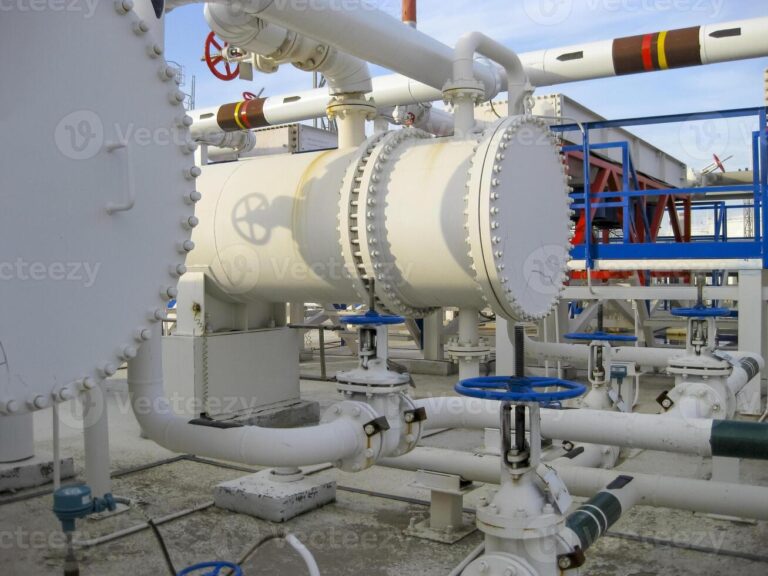Introduction
Heat exchangers in HVAC systems, designed to facilitate efficient thermal energy transfer between different air streams or fluids. They play a crucial role in optimizing the performance of HVAC systems by recovering and transferring heat, which leads to improved energy efficiency, reduced operational costs, and enhanced indoor air quality. By minimizing energy wastage and maintaining consistent air temperatures, heat exchangers contribute significantly to both comfort and environmental sustainability in residential, commercial, and industrial HVAC applications.
Key Points Heat Exchangers
Efficient Heat Recovery
Heat exchangers in HVAC systems recover energy from exhaust air, which can be used to preheat or pre-cool incoming fresh air. This energy recovery process reduces the energy demand on the heating or cooling system and ensures that the incoming air is at a comfortable temperature.
Air Filtration and Ventilation
Heat exchangers can integrate filtration systems that remove contaminants, dust, and allergens from the incoming fresh air. By improving the ventilation process and ensuring the supply of clean, filtered air.
Humidity Control
Proper humidity levels are essential for maintaining indoor air quality. Heat exchangers can also be used to control humidity levels by transferring moisture between the air streams, ensuring that the indoor environment does not become too dry or too humid, which can cause discomfort or health issues.
Reduced Cross-Contamination
In some HVAC systems, air streams are kept separate to prevent cross-contamination. This is particularly important in environments like hospitals and industrial facilities, where the indoor air needs to remain free of pollutants or pathogens.
Energy Efficiency and Lower Emissions
By recovering waste heat and reducing the energy needed for heating or cooling, heat exchangers contribute to the overall energy efficiency of the building. Lower energy usage translates into reduced emissions from HVAC systems, which improves both indoor and outdoor air quality.
Applications of Heat Exchangers in HVAC Systems
Energy Recovery Ventilation (ERV) Systems
Heat exchangers are commonly used in ERV systems to transfer heat between exhaust air and incoming fresh air. This improves energy efficiency by reducing the amount of heating or cooling required to maintain comfortable indoor conditions.
Air Conditioning Systems
In HVAC air conditioning units, heat exchangers facilitate the cooling process by transferring heat from indoor air to the refrigerant in evaporator coils. This improves the system’s cooling efficiency, reducing the amount of energy required to cool spaces.
Heat Pumps
Heat exchangers are integral to heat pump operations, where they transfer heat from the outside air or ground into a building during winter (heating mode) and reverse the process during summer (cooling mode).
Boiler Systems for Heating
In boiler-based HVAC systems, heat exchangers transfer heat from the combustion gases to the water or steam used for space heating. They improve the efficiency of boilers, ensuring optimal heat transfer and reducing energy waste in both domestic and large-scale heating systems.
District Heating and Cooling Systems
In urban settings, district heating and cooling systems use heat exchangers to distribute thermal energy efficiently across multiple buildings. The heat exchangers transfer heat from centralized heating or cooling plants to individual building systems.
Dehumidification in HVAC Systems
Heat exchangers help in dehumidification by removing moisture from the air as it passes over cooling coils. This is especially useful in climates with high humidity levels or in environments where precise humidity control is essential, such as data centers or healthcare facilities.
Improving Indoor Air Quality
Heat exchangers support ventilation by ensuring that incoming air is pre-conditioned to desired temperatures while maintaining good air circulation. This enhances air quality in hospitals, schools, offices, and other environments where maintaining fresh.
Data Centers Cooling
In data centers, where maintaining optimal temperature is crucial for preventing equipment overheating, heat exchangers are used in the cooling systems. They enable efficient heat transfer to regulate the environment and protect sensitive electronic equipment from excessive heat.
Conclusion
Heat exchangers play a pivotal role in enhancing the performance and efficiency of HVAC systems across various applications, from residential air conditioning to large-scale industrial climate control. Their ability to transfer heat efficiently allows for better energy conservation, lower operational costs, and improved indoor air quality. Whether in energy recovery, heating and cooling, or humidity control, heat exchangers ensure that HVAC systems maintain optimal indoor environments while reducing environmental impact.

